Related Research Articles

The Rugby World Cup is a men's rugby union tournament contested every four years between the top international teams, the winners of which are recognised as the World champions of the sport.

Transkei, officially the Republic of Transkei, was an unrecognised state in the southeastern region of South Africa from 1976 to 1994. It was, along with Ciskei, a Bantustan for the Xhosa people, and operated as a nominally independent parliamentary democracy. Its capital was Umtata.
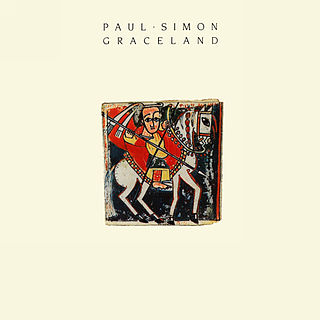
Graceland is the seventh solo studio album by the American singer-songwriter Paul Simon. It was produced by Simon, engineered by Roy Halee and released on August 25, 1986, by Warner Bros. Records. It features an eclectic mixture of genres, including pop, rock, a cappella, zydeco, isicathamiya and mbaqanga, inspired by the music of South Africa.

The Parliament of the Republic of South Africa is South Africa's legislature; under the present Constitution of South Africa, the bicameral Parliament comprises a National Assembly and a National Council of Provinces. The current twenty-seventh Parliament was first convened on 22 May 2019.
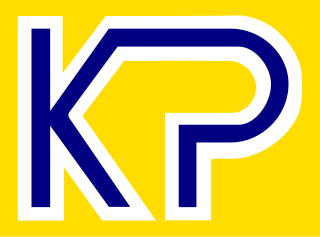
The Conservative Party of South Africa was a far-right South African political party that sought to preserve many aspects of apartheid in the system's final decade, and formed the official opposition in the white-only House of Assembly in the last seven years of minority rule. It declined quickly after apartheid ended, before being merged with the Freedom Front in 2004.
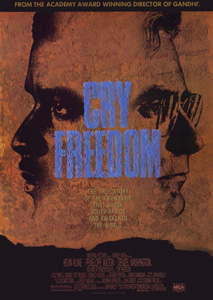
Cry Freedom is a 1987 epic apartheid drama film directed and produced by Richard Attenborough, set in late-1970s apartheid-era South Africa. The screenplay was written by John Briley based on a pair of books by journalist Donald Woods. The film centres on the real-life events involving South African activist Steve Biko and his friend Donald Woods, who initially finds him too radical, and attempts to understand his way of life. Denzel Washington stars as Biko, while Kevin Kline portrays Woods. Cry Freedom delves into the ideas of discrimination, political corruption, and the repercussions of violence.

32 Battalion was an elite light infantry battalion of the South African Army founded in 1975, composed of black and white commissioned and enlisted personnel. It was disbanded on 26 March 1993.

Apartheid was a system of institutionalised racial segregation that existed in South Africa and South West Africa from 1948 to the early 1990s. Apartheid was characterised by an authoritarian political culture based on baasskap, which ensured that South Africa was dominated politically, socially, and economically by the nation's minority white population. In this minoritarian system, there was social stratification, where white citizens had the highest status, followed by Indians and Coloureds, then Black Africans. The economic legacy and social effects of apartheid continue to the present day, particularly inequality.

Bantubonke Harrington Holomisa is a South African Member of Parliament and President of the United Democratic Movement.
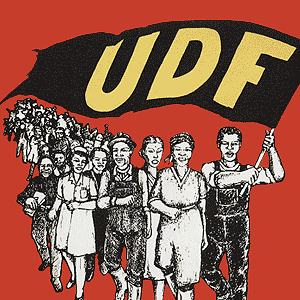
The United Democratic Front (UDF) was a South African popular front that existed from 1983 to 1991. The UDF comprised more than 400 public organizations including trade unions, students' unions, women's and parachurch organizations. The UDF's goal was to establish a "non-racial, united South Africa in which segregation is abolished and in which society is freed from institutional and systematic racism." Its slogan was "UDF Unites, Apartheid Divides." The Front was established in 1983 to oppose the introduction of the Tricameral Parliament by the white-dominated National Party government, and dissolved in 1991 during the early stages of the transition to democracy.

Israel–South Africa relations refer to the current and historic relationship between the Republic of South Africa and the State of Israel. During the 1950s and 1960s, Israel became an open critic of the apartheid regime in South Africa, hoping to establish good relations with black-majority countries in Africa. However, most African countries severed ties with Israel in 1973 while increasing their ties with Arab countries. This situation led Israel to deepen its diplomatic ties with South Africa throughout the 1970s and 1980s. Up to 1986, Israel had a vibrant economic relationship but was forced to sanction South Africa in 1987, mainly as a consequence of American pressure.
The International Socialist League of South Africa was the earliest major Marxist party in South Africa, and a predecessor of the South African Communist Party. The ISL was founded around the syndicalist politics of the Industrial Workers of the World and Daniel De Leon.

Regiment Erongo was a quick-reaction unit of the South West African Territorial Force.

62 Mechanised Infantry Battalion Group was a unit of the South African Army (SADF); although it was classed as mechanized infantry, it was a combined arms force consisting of a Mechanised Infantry Battalion forming the core of the group, Main Battle Tank Squadron, Armoured Car Squadron, Air-defence Battery, Engineer Squadron, Artillery Battery, specialists i.e. EW, MAOT, etc. and all the supporting staff and functions required for such a force.
The Dakar Conference was a historic conference between members of the Institute for Democratic Alternatives in South Africa (IDASA) and the African National Congress (ANC). It was held in Dakar, Senegal between 9 and 12 July 1987. The conference discussed topics such as strategies for bringing fundamental change in South Africa, national unity, structures of the government and the future of the economy in a free South Africa. The IDASA delegation from South Africa, participated in the conference in their private capacity and would later be condemned by the South African government for meeting a banned organization. The future indirect result of the conference was South African government talks with Nelson Mandela and his eventual meeting with P. W. Botha in 1989.

The Transkei Defence Force (TDF) was established during March 1981, from the 141 Battalion of the South African Defence Force (SADF). It was the defence force of the Republic of Transkei, a nominally independent bantustan during the Apartheid era of South Africa.

Robben Island Prison is an inactive prison on Robben Island in Table Bay, 6.9 kilometers (4.3 mi) west of the coast of Bloubergstrand, Cape Town, South Africa. Nobel Laureate and former President of South Africa Nelson Mandela was imprisoned there for 18 of the 27 years he served behind bars before the fall of apartheid. Since then, three former inmates of the prison have gone on to become President of South Africa.
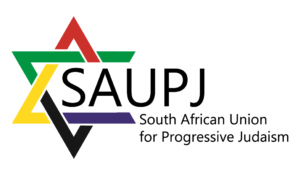
The South African Union for Progressive Judaism (SAUPJ) is an affiliate of the World Union for Progressive Judaism and supports 11 progressive congregations. Rabbi Moses Cyrus Weiler, a founder of Reform Judaism in the country, led the country's first Reform synagogue, Temple Israel in Hillbrow, Johannesburg. Weiler is credited with growing the movement, to represent 15-17% of South African Jewry and establishing 25 congregations in the country. A 2020 joint study by the Institute for Jewish Policy Research and the University of Cape Town showed that 12% of Jews identified as Progressive and that in relative terms the progressive strands are increasing after falling to 7% in 1998 and 2005 studies. In Johannesburg, the community accounts for 7% of the city's Jewry, rising to 18% in Cape Town and 25% in Durban.

The 1987 Transkei coup d'état was a bloodless military coup in Transkei, an unrecognised state and a nominally independent South African homeland for the Xhosa people, which took place on 30 December 1987. The coup was led by the then 32-year-old Major General Bantu Holomisa, the Chief of the Transkei Defence Force, against the government of Prime Minister Stella Sigcau (TNIP). Holomisa suspended the civilian constitution and refused South Africa's repeated demands for a return to civilian rule on the grounds that a civilian government would be a puppet controlled by Pretoria.
References
- ↑ "Namibian Homelands". www.worldstatesmen.org. Retrieved 2021-08-25.
He was the grandfather of Miss Southern Africa 2008/09 Miss Shenaaz Vetjituavi Tjejamba.